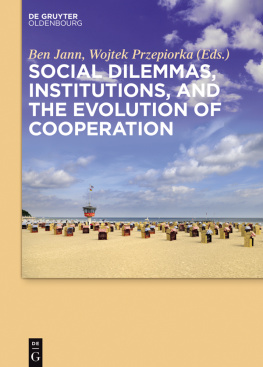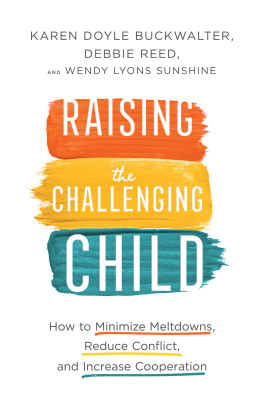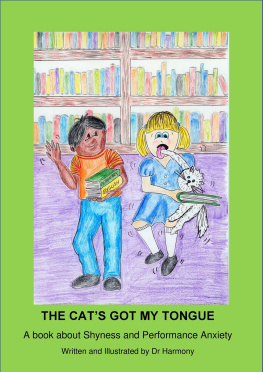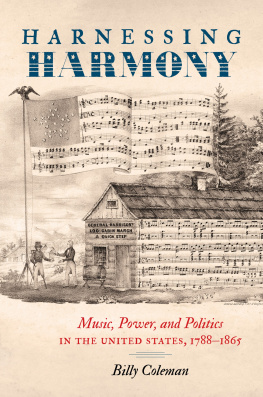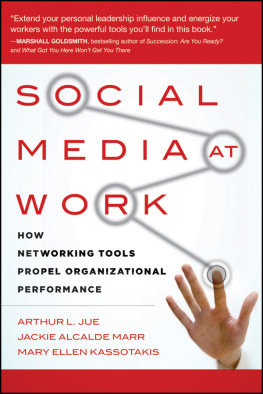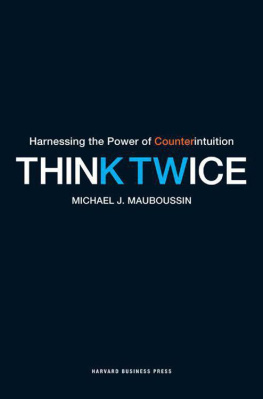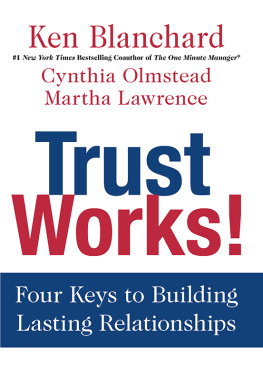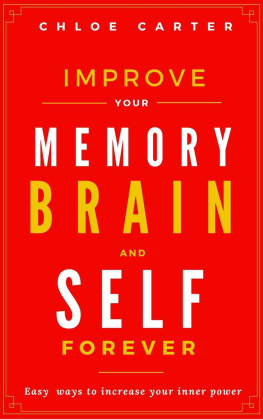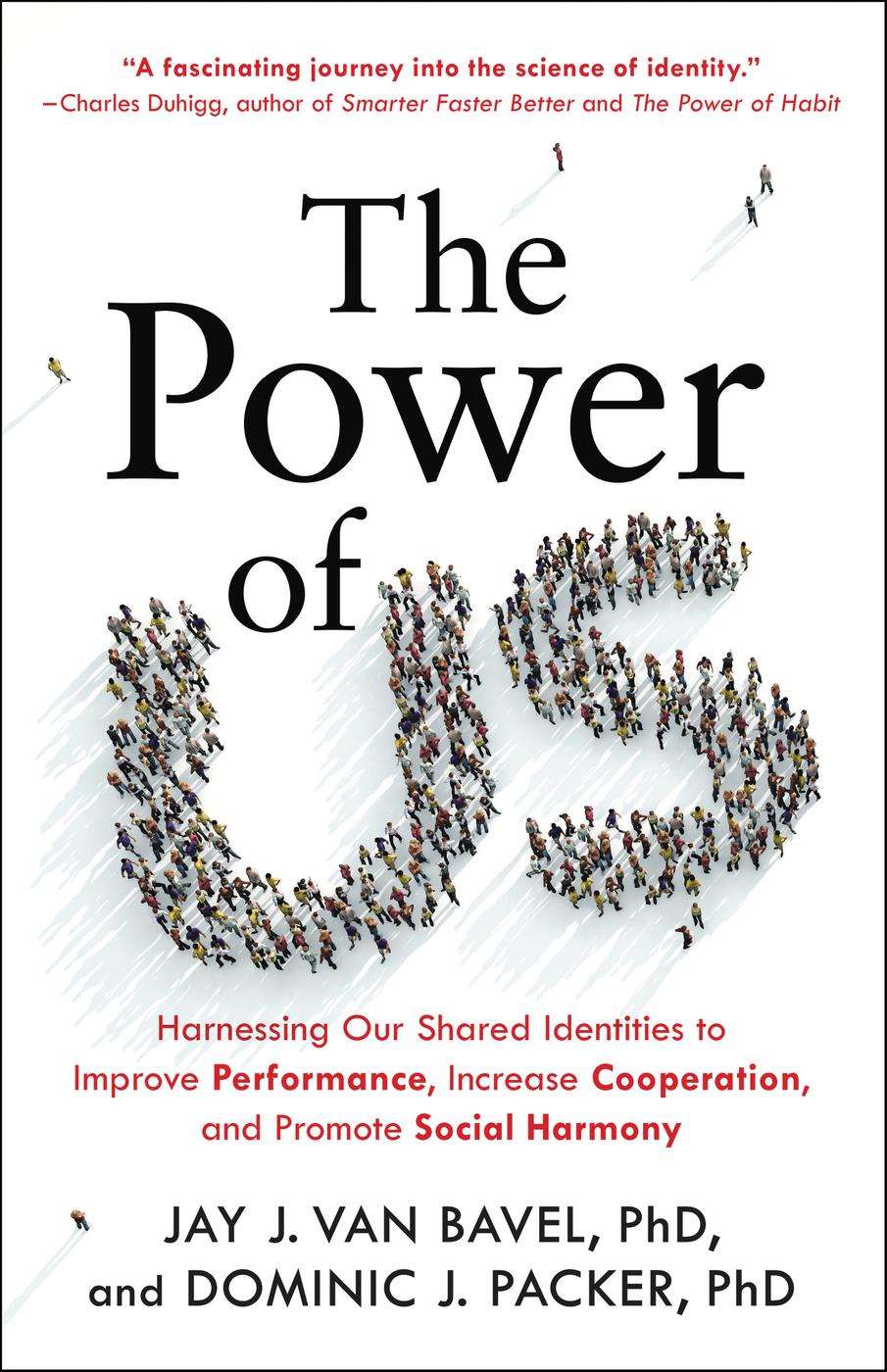
Copyright 2021 by Jay J. Van Bavel and Dominic J. Packer
Cover design by Patrick Insole for Headline Publishing Group
Cover art Bevan Von Weichardt / Shutterstock
Author photographs: Van Bavel, Ava Plasse, Outlier.org; Packer, Douglas Benedict
Cover 2021 Hachette Book Group, Inc.
Hachette Book Group supports the right to free expression and the value of copyright. The purpose of copyright is to encourage writers and artists to produce the creative works that enrich our culture.
The scanning, uploading, and distribution of this book without permission is a theft of the authors intellectual property. If you would like permission to use material from the book (other than for review purposes), please contact permissions@hbgusa.com. Thank you for your support of the authors rights.
Little, Brown Spark
Hachette Book Group
1290 Avenue of the Americas, New York, NY 10104
littlebrownspark.com
facebook.com/littlebrownspark
twitter.com/lbsparkbooks
First Edition: September 2021
Little, Brown Spark is an imprint of Little, Brown and Company, a division of Hachette Book Group, Inc. The Little, Brown Spark name and logo are trademarks of Hachette Book Group, Inc.
The publisher is not responsible for websites (or their content) that are not owned by the publisher.
The Hachette Speakers Bureau provides a wide range of authors for speaking events. To find out more, go to hachettespeakersbureau.com or call (866) 376-6591.
10 9 8 7 6 5 4 3 2 1
ISBN 978-0-316-53842-8
LCCN 202193560
E3-20210630-DA-PC-ORI
We are all a sort of chameleons, that still take a tincture from things near us.
John Locke, Some Thoughts Concerning Education
Identity as area of interest, as the form in which youve chosen to expend your loveand your commitment.
Zadie Smith, Intimations
Explore book giveaways, sneak peeks, deals, and more.
Tap here to learn more.

The room was abuzz with serious academic conversation. In the middle of it all stood the two of us trying to blend in by making small talk with a group of fellow graduate students. As new office mates, we hardly knew each other. Jay was a small-town kid from rural Alberta and Dominic a sophisticate born in England whod relocated to Toronto from Montreal. Our relationship had encountered a rocky start a few weeks earlier when Jay adopted the spare old wooden desk in Dominics office. Finding his tiny city apartment a bit cramped, Jay decided to bring his colossal and pungent bag of hockey equipment to store in our poorly ventilated sub-basement space.
The hockey bag had chilled our potential friendship, and at that point, we would have preferred to spend our time apart. But the opportunity for cheap wine and free food proved irresistible on our tight graduate-student budgets. For a few moments, we put aside our differences and debated the merits of using neuroscience techniques to study group dynamics. We were both genuinely excited about the possibility of using these new tools to look into peoples minds as they interacted with others, formed teams, and struggled to confront their prejudices.
In a roomful of eminent scholars and hotshot young professors, we were at the bottom of the pecking order. But we didnt mind. Every month, the University of Torontos Department of Psychology hosted brilliant speakers from other universities, and we had the chance to take them out for lunch, grill them with questions at their talk, and join the entire department afterward for a catered gathering in the faculty lounge. To us, these were the most exciting events at the university, and for a few hours each month, we were invited to take part in these rituals.
But on this occasion, something went terribly, terribly wrong.
As we debated ideas, Jay popped a couple of pieces of cheddar into his mouth. The cheese had been cut into cubes roughly the size of dice. Someone made a witty remark. Jay, who was in mid-chew, laughed and then tried to swallow. Unsuccessfully, for at this moment, the cheese lodged firmly in his throat.
The conversation carried on. Nobody noticed Jays sudden distress, the reddening of his face, the sheen of sweat forming on his brow. Not wanting to embarrass himself in a roomful of professors, he tried to wash the cheese down with a swig of beer. But instead of removing the obstacle, this made things worse, blocking any air from reaching his lungs.
Most people have experienced one or two terrifying life-and-death moments. Confronted with immediate danger, our brains set in motion a series of psychological and physiological responses that are designed to confront the threat. Our hearts start racing, our pupils dilate, and a rush of hormones are released to prepare for fight or flight. In those moments, the world seems to shrink as we focus on how to save our lives.
As if in slow motion, Jay saw Dominic and the other students turn to him with inquiring looks. Unable to speak, he clutched his throat in a choking motion. But it didnt register with the others. They looked on with confusion. A dozen jovial conversations continued in the background as if nothing were amiss.
Time was running out.
Jay scanned the room. He desperately wanted to impress the faculty, and in the face of mortal peril, he felt caught between the need to save himself and an irrational desire to avoid public humiliation.
Suddenly an ancient memory from an old safety video came to mind, a lesson from one of the many safety courses he had taken while working in the oil fields of Alberta: people who are choking are more likely to die if they retreat to a private space like a restroom. If you stay in public and request help, usually someone will know how to administer the Heimlich maneuver to save your life.
Jay spotted the bartender a few feet away. One of the only nonacademics in the room, this man might have the training and presence of mind to save a student from choking on hors doeuvres. Jay stumbled behind the bar and, unable to speak, made another choking gesture. The bartender understood this universal sign of distress. He stood behind Jay, grabbed him around the midsection, and administered a few thrusts to the torso.
By now, professors and graduate students had noticed that something unusual was happening behind the bar. Conversations ebbed as people turned to stare at the two men wrapped in an awkward embrace.
The cheese was partially dislodged, and Jay felt a trace of air return to his lungs. Eager to avoid further embarrassment, he grabbed Dominic by the arm and pulled him through the crowd and out of the reception. There was a mens room across the hall and Jay, still struggling to breathe, needed more help.
It was then that Dominic fully understood the situation. It had been years since hed learned the Heimlich maneuver at summer camp and he wasnt sure that he remembered what to do. But realizing that he was all that stood between Jays future as a psychologist and his imminent demise in the restroom, Dominic wrapped his arms around his new office mate.
After a few hesitant pumps, Dom got the hang of it, and with one final push of his fists into Jays midriff, the cheese popped out and rolled across the floor!
Jay took a long, deep, thankful breath of relief.
We stared at each other.
Our immediate reactions to this near-death experience could hardly have been more different. As professors came in and out of the mens room giving us strange looks, Jay laughed uproariously at the absurdity of the situation. The thought of dying at a wine-and-cheese seemed too surreal to be taken seriously. He wanted to head back to the reception for another round of drinks and some more cheese before the platter was bare.


